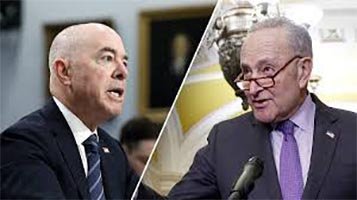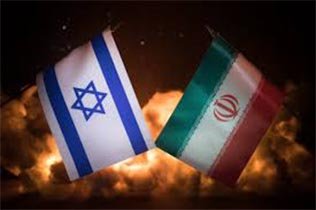Mahmoud's Dream
An elderly man whose name I unfortunately forget reminisced with us about his life as a youth in Southern Iraq, and dreamed aloud of the return of the marshy wetlands, with all the birds and wildlife and people living in harmony amidst the rivers and the high reeds.
For the sake of identification, we’ll call our friend Mahmoud. We sat in a tiny room stuffed to capacity as the old man spoke. His partner Abdel, a man my own age, middle thirties with dark hair and mustache, sat in the back and let the older man talk. He knew it wouldn’t be long before Mahmoud grew tired and would stop and then Abdel could resume what they had started, teaching us Arabic. In the meanwhile we listened politely, sweating in our heavy Army Combat uniforms as the barely effective ceiling fan whirled overhead. Mahmoud seemed not to notice our discomfort and continued with his story.
In his mind, he was a boy again, paddling a small boat like a canoe down the rivers and hidden channels between the reeds with his friends. In his broken but understandable English, he told us how young lovers would disappear from their parents’ homesteads and hide together in the reeds for hours where they would not be seen or disturbed.
“Back then it was commonly understood that if a girl came home pregnant, then she and her boyfriend would be married,” the old man smiled at the memory.
I was stationed in Southern Iraq at a base called Camp Adder, formerly known as Tallil Air Base, near Nasiryia. It was between 2006-2007. That summer was the worst I can remember with temperatures reaching 120. I suffered in that room and listened patiently out of respect. As a logistician in an Infantry brigade’s plans section, I had a lot of work on that deployment, at the beginning deploying my brigade and at the end bringing us home. But in steady state operations in the middle I had little to do and so I had decided to learn more about my enemies and our friends, and their culture, by learning a little Arabic. There must have been quite a few of us with similar work schedules and free time because the class was packed, with more than 30 soldiers and a few officers like myself in that tiny room provided for us by the post chaplain. I don’t regret the decision; I only wished that the AC would have worked as advertised.
It’s been several years now since I left that place, and I had forgot about the old man. Mahmoud was elderly in the extreme, with bent shoulders from skeletal micro fractures common to those suffering from osteoporoses. His skin was very tan and leathery, almost red in appearance. His hair was thinning and white. I had forgotten Mahmoud and all the Iraqis I had met there until recently. A show on PBS called “Nature: Braving Iraq” brought back the memory. In the documentary, a man named Azzam Alwash was depicted in his efforts to bring the wetlands of Southern Iraq to their former glory. Saddam Hussein in retaliation for something the locals had done had spent millions misdirecting the Tigris and Euphrates rivers in the region in order to starve the people of precious water. Now Azzam was working with local contractors to break down the levies and return the water to the wetlands where they belonged.
Two filmmakers had come film the documentary and talk to Azzam. They went down into the lowlands to take pictures of rare birds and wildlife and water buffalo and people. They were the only three people in the world seemingly to care about the return of rare local birds from the precipice of extinction. It was almost comical how many people armed with guns and uparmored trucks it took to keep the filmmakers safe on their endeavor. A whole fleet of about ten trucks and contractors armed to the teeth as well as half a dozen Iraqi Police escorted the men on their travels to the site. Their efforts were hampered by local politics as the boats they rented were from one tribe and the land belonged to another. Dueling sheiks argued about who has the right to do what while the commander of the security gave the “negative Maverick this ain’t going to happen today” hand signal to the disappointed filmmakers.
I don’t remember seeing water buffalo or many birds of note when I was there, but I do remember the reeds. They grew high, even in the desert, by the waterways flowing through our little base. There was a spot next to a sandy running track where I used to go running where the reeds were high and thick. I remember running in the cool of night and as I rounded the corner next to the reeds, farthest from the lights of the nearby ball field I remember wondering, “is this really a good idea? There could be snipers out there.” I remember going out on convoys, the few I went on in my 15-month extended tour from hell and visiting with local Iraqis. My brigade built a school and a park and a water treatment plant and I recall going to the open house ceremony and watching shoeless children playing in the dirt on newly constructed swings. It was one of the rare moments I felt good about what we were doing there in Iraq.
Most of my memories of Iraq make me sick with disappointment and disgust. But I remember the transcendent decency of some of our soldiers and the mild happy mannerisms of a few hard working Iraqi workers and contractors there, men like Mahmoud and Abdel. A local contractor there who had been working on a project for us on the base was friendly and talkative. He had studied in Russia and knew the language. His English was perfect as a second or third language could be. He had lived in Europe and in Canada, but was denied access to the United States because he had studied in Russia during the cold war. I asked him why he had returned to Iraq.
“I love my country deeply and I feel obligated to rebuild it,” he said.
Seeing this documentary, now a few years old, gives me hope about the future of Iraq. Perhaps they’re on their way to rebuilding a new democratic republic? There is reason for doubt. Many of my friends and coworkers have plenty of doubt. They ask me constantly, “Are we making a difference over there? When are the troops coming home? They’ve been fighting over there for centuries, let them kill each other off. Things will never change, etc.”
I don’t know. I can’t see the future. But I didn’t spend two months shy of two years, with 15-months in theater for nothing. But if not for nothing then, what?
Iraq’s future may be in doubt, but so is that of our own country. The US and the world are in the midst of turmoil economic and otherwise. The markets are on the verge of collapse. Unemployment is high, inflation and gas prices are up, hope is low. Everyone is shouting for change. Who can survive?
I think of the resilience and optimism of some of the Iraqis I met and I wonder why Americans of all people don’t act as they do. Iraq has far fewer tools to make a go of this democracy thing and yet young Americans with their sense of decency still file over there to do their turn in the desert or the mountains and to Afghanistan and share their knowledge and skills with people they’ve never met and will never see again. Some may ask, why spend all that entrepreneurship on them? Shouldn’t we use that enthusiasm here at home?
This American Republic is of far more value than the unsteady governments of the rest of the world and yet we’ve made a poor showing as of late. In my own humble opinion, we should do far less whining and roll up our sleeves and get to work, like Mahmoud and Abdel and the Iraqi contractor back at Tallil. We have skill and resources and drive to make things right. And we have a choice to make in 2012. Let’s make the best of it. I for one did not spend 15-months in the desert to see our freedom and our republic erode and disappear here at home.
I learned from a fellow guardsman that Mahmoud died shortly after our tour of duty. He never saw his dream come to fruition, only in his mind. I remember him snoring in the back of the room as Abdel talked dreaming of the past as if it were the future, oblivious to our quiet giggling. There is time for Abdel and Azzam though, and their work continues. Our dream never died, but it’s in trouble. But we have the right people and with the right attitude we can turn things around. I hope we will. The flame of hope is battered but has not gone out.
I hope for the sake of the memory of Mahmoud and for us that the United States of America continues to be a beacon, a shining city on the hill for all others to use as their standard for many years to come.
“Let us raise a standard to which the wise and honest can repair; the rest is in the hands of God.” –George Washington
Captain Jeremy Griffith was deployed with the 1st Brigade Combat Team 34th Infantry Division to Iraq in 2006-2007. He served as a logistician and transportation officer at Camp Adder.




